Our
Challenges
Our
Challenges
Laudes Foundation seeks to address the dual global crises of climate breakdown and deepening inequality by inspiring and challenging industry to harness its power for good.
Read more
We do this by working with and through business and industry; specifically the fashion and built environment industries, both of which have an outsized impact on emissions and social inclusion. At the same time, we also focus on the finance and capital markets sector, whose influence extends far and wide, impacting decisions and corporate action throughout the real economy.
Laudes Foundation has collaborated with experts and practitioners from across civil society, industry, academia and finance, to identify some of the biggest challenges within these sectors.
Fashion
The fashion industry is responsible for an estimated 8-10% of global carbon emissions. Its environmental impact also comes at a cost for the workers within it.
Finance and Capital Markets
In finance and capital markets, money is plentiful, but financial value does not assess the real cost to people or natural resources.
Built Environment
The built environment produces almost 40% of global carbon emissions, which will only increase as the global population grows.
Our challenges
Interventions
in action
Laudes Foundation designed its strategy to address these challenges through strategic interventions. These cut across our focus areas and highlight the integrated nature of both the challenges and solutions we’re pursuing.
Explore our interventions and how we’re working with partners to achieve them by clicking the tiles below.
Filter by sector/industry
Fashion
Finance and
Capital Markets
Built
Environment
Built by Nature: Accelerating the uptake of sustainable wood and bio-based materials construction
Accelerating investments into next-generation and circular materials
Mobilising investors, asset owners and banks towards Paris compliance
Transforming business models to landscape approaches
Supporting industry roadmaps and legislation towards zero carbon buildings
Integrating the price of externalities into EU policy
Promoting incentives for accountability
Enabling a just transition in the built environment
Supporting, deepening and disseminating new economic thinking
Accelerating investments in zero-carbon buildings
Ensuring a just transition and social protection for workers
Driving legislation and advocacy to call for policy change on materials in the EU
Supporting collective action and agency for workers
Interventions in action
Accelerating investments in zero-carbon buildings
Meeting Europe’s 2030 climate targets will take more than EUR 3.5 trillion of investment to decarbonise our building stock, with an investment gap of EUR 2.75 trillion – the largest climate investment gap of any sector.
The pace and scale of collaboration and innovation across the built environment and finance sectors needs to exponentially increase to close the gap. Many investors are still grappling with energy performance and only just starting to wake up to the carbon bomb of embodied carbon in building materials. For the sector to meet such ambitious targets it needs frameworks relating to carbon budgets and to benchmark embodied carbon in the built environment.
Laudes Foundation is supporting partners working to overcome the barriers to investment and shift the flow of capital into upgrading the built environment.
Together our partners are mobilising investor leadership to decarbonise buildings and advocating for strong accountability mechanisms across Europe and at EU level. They’re aligning the metrics, pathways and targets used by investors and industry, creating a shared route to decarbonisation and accelerating action.
This group of partners is working in four areas aimed at shifting investment flows to decarbonise the total greenhouse gas (GHG) impact of buildings:
Align targets and pathways to decarbonise real estate portfolios. To align efforts and measure impact, consistent methodologies are required. Industry and investor groups need to collaborate to set targets and decarbonisation pathways to be able to communicate in the same language. The Carbon Risk Real Estate Monitor (CRREM) has established a science-based pathway for existing building emissions that is now being referenced by European central banks. CRREM and the Partnership for Carbon Accounting Financials (PCAF) have signed an agreement that helps investors and banks measure and report their financed emissions from real estate. CRREM and the Science Based Targets initiative (SBTi) have also launched a new partnership to align on science-based decarbonisation targets for real estate. More than EUR 500 billion of real estate assets have now been benchmarked against the CRREM 1.5°C pathways.
Improve measurement mechanisms. Measuring climate impacts of investment portfolios is complex and data is often unreliable. Improved data and transparency will help both investors and the built industry ensure portfolio measurement mechanisms feature real estate and include both operational and embodied carbon. PCAF is driving carbon accounting for new and existing housing stock and has launched a European building emissions factor database freely available for all investors. In collaboration with PCAF, among others, the Institutional Investors Group on Climate Change (IIGCC) is creating a roadmap for asset owners and managers wanting to align portfolios with Paris goals, while the World Business Council for Sustainable Development (WBCSD) is advocating for investor measurements to include the total carbon impact of buildings.
Develop new financial instruments. Investors need access to new financial instruments and products that can make their decarbonisation commitments a reality in different jurisdictions across Europe, particularly ones that shift the biggest investment flows in real estate, such as mortgages, bonds and real estate investment trusts (REITS). The Climate Bonds Initiative and Green Finance Institute are working on developing and implementing these to transform the sector towards Paris alignment.
Strengthen investor accountability for built environment decarbonisation targets. Partners are driving a more assertive advocacy agenda across Europe, accelerating investor action and advocating for EU regulatory change. The World Green Building Council, Climate Bonds Initiative and IIGCC have a central voice in advocating for EU regulation to increase investor pressure and incentivise industry to deliver.
Laudes also launched a community of practice of its partners and stakeholders around 'finance and investment in the built environment' to enable investors and industry practitioners to collaborate, share lessons and increase their collective impact. In addition, we integrated our work on the just transition to ensure that as investment scales to close the climate gap, the needs of residents and sector workers are front and centre.
Interventions in action
Supporting industry roadmaps and legislation towards zero-carbon buildings
We cannot achieve the goals of the Paris Agreement and deliver a climate-neutral Europe unless we tackle the environmental impacts — both carbon and resource related — across the entire lifecycle of a building.
Cristina Gamboa, CEO, World Green Building Council
2021 was a critical year for EU policy concerning the built environment, with the revision of several major EU building regulations acknowledging the need to cover the total climate impact of buildings across their life cycle.
Thanks to the leadership of Laudes Foundation’s partners, the draft revision of the Energy Performance of Buildings Directive (EPBD) by the EU Commission, requires whole life cycle measurements starting with large buildings of over 2000 square metres as of 2027, and applying to all buildings after 2030, sending a signal for change.
EU policy change builds on domestic advances in countries like Denmark, France and the Netherlands, where regulation measuring the whole carbon life cycle of buildings is being implemented, and more regulators are anticipated to follow in setting clear targets in the coming years.
Laudes Foundation's partners have enabled this significant policy shift from an energy only to a wider carbon focus. For example, with support from Laudes, the IKEA Foundation and the European Climate Foundation, the World Green Building Council's #BuildingLife campaign is establishing decarbonisation roadmaps for buildings in 10 European countries and at the EU level. These set out how the building sector and policymakers can decarbonise the whole life cycle of buildings.
This work in Europe has also led to a major shift in global sector dialogue, most notably at the ‘Cities and Built Environment Day’ at COP26, where tackling embodied and whole life carbon were put centre stage. Roadmaps have already launched in Ireland, Finland, Poland, Spain and the UK, with more on the way.
I am delighted to support the #BuildingLife campaign. A sustainable future in line with the EU Green Deal demands more action at EU level to tackle total carbon and resource impacts.
Ciarán Cuffe, MEP, Rapporteur on the Energy Performance of Buildings Directive
Other Laudes Foundation partners have shifted policy and industry practice here. The Buildings Performance Institute Europe published research exploring the needs and potential of whole life cycle carbon regulation; ECOS has been pushing for improved standards; and the European Climate Foundation is working with civil society to build capacity with national NGOs.
Mainstreaming circular economy practices
The built environment is one of the sectors with the highest potential to reach circularity, according to the World Economic Forum. There is clear momentum and increasing awareness about the circular economy among stakeholders in the sector, catalysed by the European Green Deal and circular action plans developed by national, regional, and municipal governments.
At the end of 2021, Laudes Foundation launched a three-year partnership to accelerate circularity in the built environment. Led by Metabolic and Circle Economy, the initiative brings together several major networks including the Ellen MacArthur Foundation, WorldGBC, WBCSD and others. This work will help the sector become increasingly practical about how the industry, finance and policy innovations can mainstream the extension of products’ life cycles and reduce waste to a minimum.
Interventions in action
Built by Nature: Accelerating the uptake of sustainable wood and
bio-based materials construction
In October 2021, Laudes Foundation launched Built by Nature, a network and grantmaking fund dedicated to accelerating the timber building transformation in Europe.
Built by Nature’s vision is for a built environment that works in unison with nature. It seeks to radically reduce the embodied carbon in buildings by demonstrating that they can be made of low-carbon timber and bio-based materials, not carbon-heavy steel and cement. Built by Nature also seeks to safely store carbon in our buildings for generations and sequester carbon by championing forest stewardship and regeneration.
Its partners are pioneering critical solutions to the challenges of the timber building transformation, and include Bauhaus der Erder; the Centre for Natural Material Innovation at Cambridge University; the Carbon Neutral Cities Alliance (CNCA); Cities4Forests; and Climate-KIC.
Built by Nature connects key actors across the built environment and forest communities to spark city-scale projects and amplify stories of ground-breaking timber projects and solutions. In close collaboration with its major partners and frontrunner companies, Built by Nature aims to change perceptions around timber construction and reshape the built environment. Leading frontrunners who have joined Built by Nature to date range from giants of industry to start-ups, including: Arup; ASN Bank; Bennetts Associates; BLOC; BoKlok; Buro Happold; CREE Buildings; Ergodomus Timber Engineering; Gallagher; Guallart Architects; Kiss House; Lendlease; Lingotto; Ramboll; Redevco; Timber Finance Initiative; sfääri; Waugh Thistleton Architects; and 011h. By engaging frontrunners with a track record of innovation in, and commitment to, the timber building transformation, Built by Nature is demonstrating to the private sector the solutions it can implement to accelerate change at scale.
“To achieve our target of absolute zero carbon by 2040, we need to radically reduce the embodied carbon in the materials that go into our buildings. Accelerating the use of sustainably sourced timber will play a critical role in achieving that goal.“
Neil Martin, CEO Lendlease Europe
Built by Nature’s Accelerator Fund supports solutions that scale timber building and raise the bar on the positive climate impact of building with timber from sustainably sourced forests, providing grants of between EUR 50,000-250,000. Funded projects could include the design of new business models and the collection of business case data; innovations and frameworks to increase the climate impact of timber buildings; regulatory innovations; or feasibility tests for large city-scale projects that start to shift the norm for the sector.
At launch, the fund announced its first three projects. Click on the links below to watch a video introducing each project:
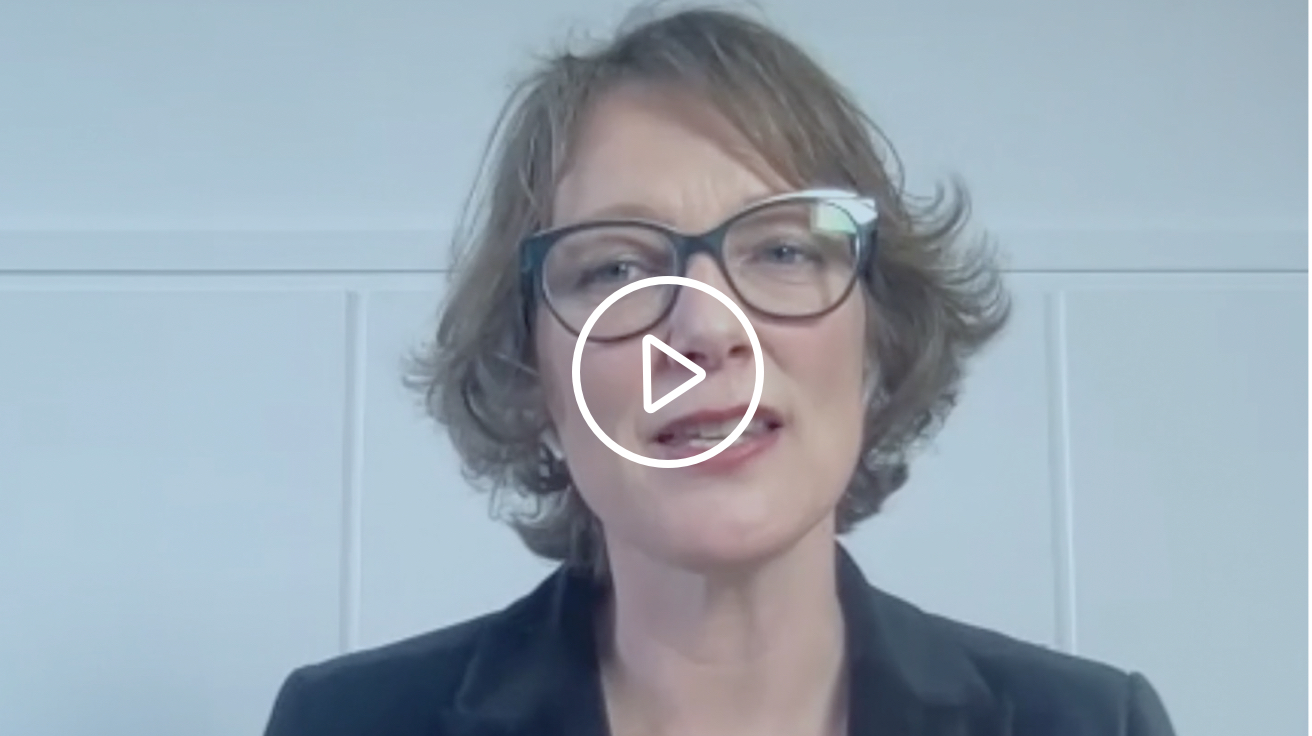
Holland Houtland
Scaling biobased building through a new blended finance and valuation model
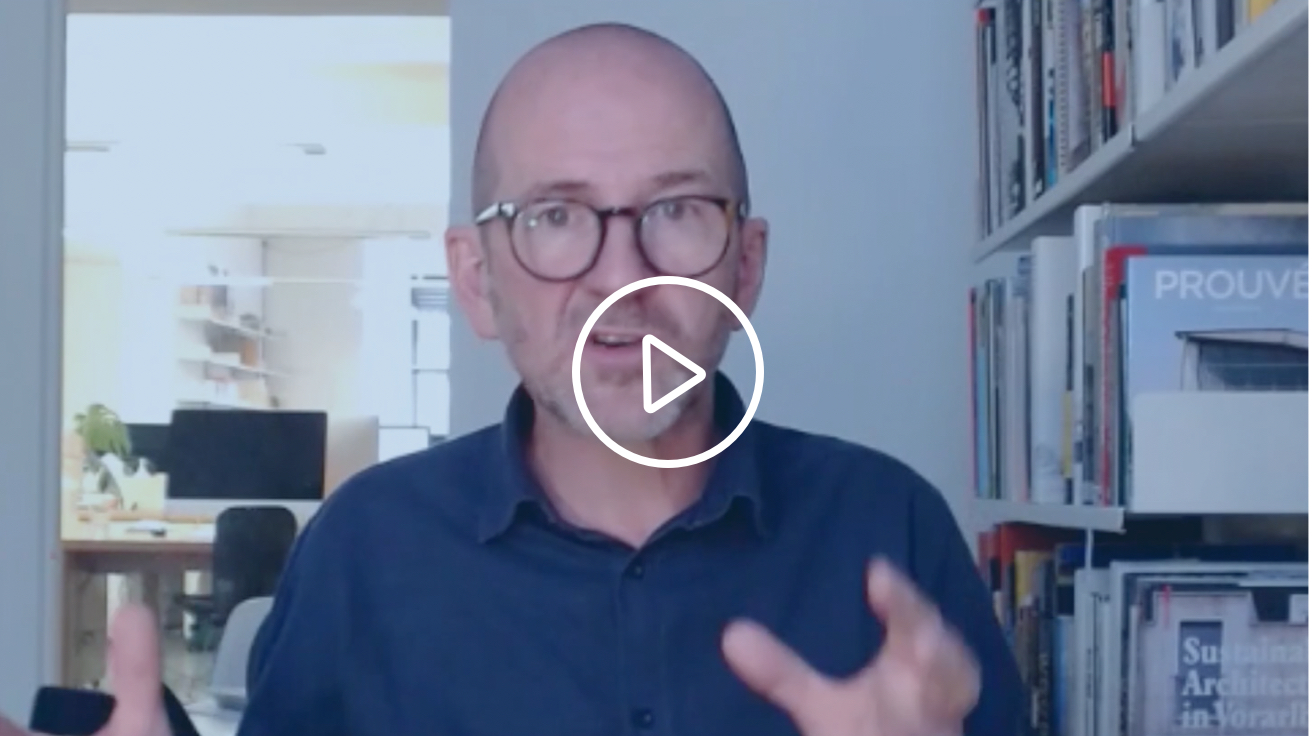
Waugh Thistleton Architects, in collaboration with expert fire engineers at University College London
Designing principles for building residential developments using engineered timber

Institute for Advanced Architecture of Catalunya’s Valldaura Labs (IAAC)
Convening frontrunners and creating an exhibition of state-of-the-art solutions ahead of the ‘European Forest City 2022’ conference
“With building space expected to double globally before 2050, we must reimagine the way we build, from a carbon-intensive industry to one that helps remove more carbon from the atmosphere than it adds. Accelerating the timber building transformation, in a way that works in unison with nature, is critical to address the built environment’s carbon footprint. Built By Nature supports those leaders working at the forefront of this challenge.“
Donald Brenninkmeijer, Chair, Built by Nature
Interventions in action
Enabling a just transition in the built environment
Two years of Covid-19, and an energy crisis that has caused household costs to rise exponentially, have increased awareness of the social impacts of buildings.
The social impact of decarbonising the built environment is also becoming better understood. This was reflected at COP26 in October 2021, which explicitly included the term ‘just transition’ in the resulting Glasgow Climate Pact for the first time. Unless we engage everyone with a stake in buildings in the transition to net zero, including workers and residents, whole communities could be left behind.
As part of its strategy to enable a just transition in the built environment, Laudes Foundation commissioned Ramboll to research social equity in decarbonisation. Its report ‘Social Equity in the Decarbonisation of the European Built Environment’ concluded that a just transition is vital to avoid a backlash from groups negatively impacted by potential job losses, renovation costs and energy prices. To ensure a just transition, we must actively focus on the rights and wellbeing of everyone involved in and affected by the built environment.
With our support, the Institute for Human Rights in Business (IHRB) developed a framework to guide decision making throughout the built environment lifecycle, manage risks to human rights and maximise social outcomes. With projects currently being piloted in Bergen, Norway, and Utrecht, Netherlands, this project has started a closer dialogue between social and environmental organisations within the sector.
Our future support to IHRB will enable a project to align climate and social outcomes in the built environment further, and help establish a global vision for a just transition in the built environment, to enable clarity and greater action.
Construction industry workers will also play a critical role in decarbonising the built environment. Laudes Foundation is also supporting labour unions in their work at the intersection of social equity and climate.
At COP26, the International Trade Union Confederation (ITUC), a Laudes Foundation partner, led a coalition of workers alongside Building and Woodworkers International (BWI). The federation of national unions represented workers in the built environment and allied sectors, who Laudes will be supporting to lead research and action together with workers in the construction sector to determine the opportunities and challenges within the process of decarbonising the sector.
Interventions in action
Transforming business models to landscape approaches
The growing demand for fashion fibres is being met by unsustainable practices, which increases CO2 emissions and negatively affects biodiversity and smallholder farmers.
To build inclusive green economies and future-proof the apparel industry’s production systems, we need to transform business models towards more regenerative practices.
Laudes Foundation's goal is to transition to landscape approaches – frameworks that enable businesses to source responsibly, create inclusive supply chains, build producer power and participation, and mitigate climate change through enhanced stewardship of natural resources. To build inclusive green economies and future-proof the apparel industry’s production systems, we need to transform business models towards more regenerative practices.
In 2021, we worked with our partners to demonstrate local landscape approaches, catalysing investments that were otherwise fragmented, and helping create a common narrative for landscape approaches around the world.
For example, Laudes Foundation, IDH – The Sustainable Trade Initiative and WWF India together formed the Regenerative Production Landscape Collaborative in Madhya Pradesh, India, a powerful coalition encouraging more private sector engagement and investment, and meaningful producer participation.
The collaborative is working to bring:
In 2021, it focused on the first Compact in the Chhindwara district of the Satpuda-Maikal landscape – an ecologically sensitive zone and home to the Pench tiger reserve and iconic Bengal tiger. The collaborative received increased interest from businesses, with more than 10 organisations from the food and fibre industries signing letters of intent to join. A secretariat was also established at the state level to anchor the implementation of the initiatives on the ground.
We also helped EcoAgriculture Partners to define a strategy for convening businesses under the 1,000 Landscapes for 1 Billion People initiative (1000L), a network along with Commonland, Conservation International, Landscape Finance Lab, Rainforest Alliance, Tech Matters and the UN Development Programme (UNDP). This work laid the foundation for linking landscape partnerships on the ground, building farmer’s capacity, making landscape-based sourcing relatable to industry at large and driving the adoption of the model at scale.
To help mobilise much-needed investment in landscape approaches, we also provided core support to help establish Landscape Finance Lab, an independent entity helping landscape management programmes secure the much-needed start-up capital required to design and incubate landscapes to become investment ready.
Interventions in action
Driving legislation and advocacy to call for policy change on materials in the EU
To accelerate the global fashion industry's transition from fossil fuel-based materials to next-generation and circular materials, we need to implement policy changes with the power to push the private and financial sectors to invest in alternative materials.
Laudes Foundation has been supporting our partners' efforts to engage with EU institutions on the green agenda by submitting evidence-based research and building coalitions of frontrunner businesses and civil society organisations that support the equitable shift toward materials that are designed to be more durable, reusable, repairable, recyclable and energy-efficient.
Examples of policies our partners have been seeking engagement on are the European Commission’s EU Textile Strategy Roadmap 2030 and the revision of the Ecodesign for Sustainable Products Directive. These are designed to help the EU shift to a climate-neutral, circular economy.
Our partners, European Environmental Bureau (EEB), Fair Trade Advocacy Office (FTAO), European Coalition on Standards (ECOS) and Policy Hub, represent the views of many civil society organisations and hundreds of apparel and footwear industry stakeholders. They have led the discussions in public consultations on these directives and shared their positions with EU lawmakers, including the European Commission, European Parliament and Member States.
The EU Commission’s package of textile-specific proposals, including the Textile Strategy, a legislative proposal aimed at improving sustainability-related information on products, looking at also preventing greenwashing, and the Eco-Design for Sustainable Products initative, reflect a number of considerations supported by our partners, in order to boost the green transition of the fashion industry. For example,Fair and Sustainable Textiles, the European civil society shadow strategy for sustainable textiles, garments, leather and footwear (prepared by the FTAO in partnership with other civil-society coalitions), has fed into the Commission’s EU Strategy for Textiles Roadmap document for evidence and data collection.
Our partners are seen by EU institutions as trusted interlocutors bringing valuable evidence and contributions to an ambitious sustainable agenda. For example, ECOS presented its latest report, Durable, repairable and mainstream: How eco-design can make our textiles circular, at a European Commission workshop on circular design, setting the scene for the entire discussion. The eco-design approach to textiles and the minimum requirements to ensure textiles are circular and sustainable, as put forward by ECOS, featured as the leading agenda item in the discussion – a notable win in its advocacy efforts.
Looking ahead, we will continue to incentivise the use of circular and next-generation materials through adequate regulatory frameworks. Among the upcoming key vehicles to continue our work are the Corporate Sustainability Due Diligence (CSDD) Directive and social protection and environmental clauses in EU trade policy.
Interventions in action
Accelerating investments into next-generation and circular materials
Fashion accounts for 8-10% of global carbon emissions, with materials responsible for 60% of these emissions. More than 60% of fashion fibres are oil-based, and this is projected to reach 70% by 2030.
To move the industry away from the use of oil-based fibres, we need to embrace alternative materials. Next-generation materials – made from renewable sources or waste – could replace oil and wood-based fibres, but that requires investment and building the market to accelerate the uptake of innovation.
We want to reimagine the fibre system, reducing dependence on fossil fuel-based materials, shifting markets away from old growth (or ancient and endangered forests) and leveraging waste as a valuable resource and future of a regenerative materials system.
In 2021, we worked with a range of organisations to lay the foundation for large-scale, system-level transformation. For example, we commissioned an innovative study by the Institute for Sustainable Communities, the World Resources Institute and Wageningen University & Research. Spinning Future Threads assesses how agricultural waste that is otherwise burned, such as wheat and rice straw, could create fashion fibres. It sparked the beginning of an industry movement that is now gaining momentum, led by Canopy and Fashion for Good, among others.
Recognising the need for investment and to increase investor engagement and confidence, we’ve supported the Material Innovation Initiative’s work on the scientific validation of next-gen materials and on narrative-building exercises that create a bridge between investors, the market and innovations. We’ve also supported the Biomimicry Institute to radically rethink the material system so that it aligns with natural resource cycles, expanding the industry’s view on circularity and sustainability to ensure we begin to ‘design for decomposition’.
Fashion for Good, the global innovation platform to make the fashion industry a force for good founded in 2017 with Laudes Foundation as a founding partner, is helping deepen the innovation ecosystem by orchestrating consortium-based projects to demonstrate the viability of next-gen material innovations to brands. This includes the Full Circle Textiles Project on chemical recycling; the Renewable Carbon Textiles Project on testing innovative biosynthetics; and the Sorting for Circularity projects in Europe and India that are mapping and developing the case for critical supply chain elements that enable textile-to-textile recycling.
"Scaling innovative chemical recycling solutions for textile-to-textile recycling is what we aim for. A solution that we’ve developed is a consortia structure, where various brands join forces, often testing various innovative solutions in parallel. This joint set up reduces risks and provides for shared learnings that participating brands can benefit from’’.
Katrin Ley, Managing Director, Fashion for Good
Five years making all fashion good
Fashion for Good celebrates its fifth anniversary in 2022, having scouted over 2,800 innovators across the globe and supported over 150 through its programmes, initiating more than 200 pilot projects with 137 implementation cases, and leveraging upwards of EUR 600 million to finance a good fashion industry, together with 22 leading brands and manufacturers from across the industry.
Integrating the price of externalities into EU policy
Interventions in action
Helping policymakers implement oil and gas phase-out policies will have important consequences for public and private finance, cost and opportunities. Setting clear policy direction provides greater certainty for industry, spurs innovation around low-carbon technologies, facilitates economic diversification and frees up resources to support green growth in developing countries.
Our work to integrate the price of climate-related externalities into EU policy seeks policy and regulatory interventions to make the costs and risks of climate change and inequality part of regional, national and local government as well as institutional investor, bank and corporate decision-making. It also aims to redirect capital flows towards sustainable and equitable solutions.
This is a gradual process that requires building and accelerating effective influence in places where regulations are debated, proposed and implemented.
The Beyond Oil and Gas Alliance (BOGA) is an example of how we’re helping bring climate and equity considerations together with efforts to engineer a just transition, with the active and growing participation of governments. BOGA is the first joint initiative of governments to tackle oil and gas production, building on policy commitments by several individual governments over recent years to end new licensing of oil and gas. BOGA’s main objective is to raise the global climate ambitions and align oil and gas production with the Paris Agreement goal of ‘well below 2°C, pursuing efforts for 1.5°C' by supporting its members to implement and raise their supply-side commitments. This will ultimately result in important adjustments in investment decisions for private sector stakeholders, given the new realities of cost and opportunities as a consequence of public policymaking.
BOGA was launched at COP26 in Glasgow and is co-funded and founded by Laudes Foundation, KR Foundation, Bloomberg Philanthropies and Sequoia Climate Fund.
BOGA is an international alliance of governments, co-chaired by Costa Rica and Denmark, working together to phase out oil and gas production. The alliance has eight core members, Costa Rica, Denmark, France, Greenland, Ireland, Quebec, Sweden and Wales, and three associate members, California, New Zealand and Portugal. It aims to elevate the issue in international climate dialogues, mobilise action and commitments, and create an international community of practice on this issue.
“Science has made it clear - the fossil era needs to come to an end. This is why Denmark has set an end date for oil and gas production. And why we are building this alliance of countries willing to step up to the plate. BOGA will help to spur momentum for countries to phase out their production of oil and gas while creating a clean energy economy.”
Dan Jørgensen, Climate Minister, Denmark
“The Beyond Oil and Gas Alliance raises the bar from climate action. If we want to address the climate crisis, we need a managed but decisive phase-out of oil and gas production. I am delighted new members are joining forces with Costa Rica and Denmark to set a date for the end of fossil fuel production. We invite other national and subnational governments to join BOGA and align their oil and gas production with the goals of the Paris Agreement.”
Andrea Meza, Minister of Environment and Energy, Costa Rica
Interventions in action
Mobilising investors, asset owners and banks towards Paris compliance
While many organisations are working on low-carbon transition in line with the Paris Agreement’s target of maintaining a 1.5°C global temperature increase, according to Climate Action 100+, less than 20% of the biggest corporate polluters have mapped out a meaningful path toward net-zero emissions. Many more do not see inequality as relevant to their business models.
Initiatives that use the power of investor engagement and action to encourage companies to embrace more sustainable business models are beginning to tackle corporate resistance and become an important lever for change.
With the help of core support from Laudes Foundation, Follow This, an organisation convening more than 8,000 small green shareholders in oil and gas companies, is using its collective power to incentivise oil and gas companies to set targets consistent with the Paris Agreement for all emissions.
In 2021, thanks to the votes of institutional investors for the Follow This climate resolutions, Shell, Equinor and BP in Europe, and Phillips 66 and Chevron in the U.S., have all set ambitions to reduce their Scope 3 product emissions – those emissions from the products that they sell.
This was the first time U.S. oil companies had committed to this; the result of Follow This securing a milestone ruling from the US Securities and Exchange Commission (SEC) that U.S. companies must take responsibility for their emissions.
Climate-aligned contracts and law enabling systemic change
In October 2021, our partner The Chancery Lane Project – an independent, collaborative initiative equipping legal professionals with practical tools to rewrite contractual clauses to tackle the climate crisis – launched a net-zero toolkit for lawyers. This provides law firms with new contractual clauses to hardwire the transition to net zero into every legal contract, across industries, practice areas and jurisdictions. The Chancery Lane Project’s clauses now cover 50 climate solutions, 12 legal practice areas and 12 industry sectors.
Interventions in action
Supporting, deepening and disseminating new economic thinking
While 20th century economic thinking has led to more global wealth, its distribution is increasingly unequal and relies on a linear production and consumption model that deepens inequality.
A new paradigm for the 21st century is needed – one that replaces neoliberalism with a new definition of value that enables industry and investors to contribute to a thriving society and planet, supported by a policy framework that creates the right incentives.
In 2021, Laudes Foundation championed new economic thinking through research and practical interventions. For example, we partnered with the Doughnut Economics Action Lab (DEAL) to work with academics, scientists, civil society, policymakers and business leadership worldwide on creating regenerative and distributive economies. With our support, DEAL’s network has grown to more than 5,000 members, and the cities of Amsterdam and Barcelona have embraced Doughnut Economics to guide transformative action to create systemic change.
We’ve also partnered with University College London’s Institute for Innovation and Public Purpose (IIPP) to tackle flaws in our current economic system and explore new thinking on the role of the state. Our five-year partnership has helped the institute design and launch the IIPP Policy Lab, which selects, implements and evaluates projects in four areas: public value, digital, place-based and green finance.
“We believe the greatest global challenge is not a single issue, but rethinking innovation and policy frameworks to unlock investment across business, public agencies, and civil society to fuel fresh solutions towards the common good. This new movement must be cross-disciplinary and dedicated to both thought-leadership and practical new tools.”
Professor Mariana Mazzucato, Director, IIPP
In addition – alongside MAVA, Oak, Marisla, KR and Ford foundations – we’ve supported Partners for a New Economy (P4NE), a funder collaborative seeking to fund innovative projects and build communities that bring new thinking and approaches to traditional economics. With our support, its partners are helping seed fund the think tank, ZOE Institute, for example, to catalyse its work with EU policymakers on new ways to incorporate social and environmental considerations into decision-making.
“The design of our economy is at the root of multiple crises, including catastrophic climate change, rampant inequality and mass extinctions. Fortunately, our economy can be reimagined and redesigned, so that nature and all people flourish. Philanthropy can help by supporting people and organisations doing the ambitious and long-term work of developing the ideas, making the connections and building the power for change.”
Jo Swinson, Director, P4NE
Interventions in action
Promoting incentives for accountability
“Voluntary action does not appear to have resulted in large scale improvement across sectors and, as a consequence, negative externalities from EU production and consumption are being observed both inside and outside the Union.”
EU Commission, Proposal for Corporate Sustainability Due Diligence Directive, February 2022
Complex global supply chains, such as the fashion industry, foster conditions for labour rights violations such as forced labour, poor wages and gender-based violence. Differences in laws between jurisdictions and a variety of voluntary commitments enable some companies to exploit these gaps.
Following years of effort by Laudes Foundation partners to engage with policymakers, civil society and businesses to strengthen accountability and improve business practices, 2021 brought significant legislative progress. In April 2021, the EU Commission adopted a proposal on the Corporate Sustainability Reporting Directive, which will ensure minimum mandatory requirements for companies to report on the sustainability impact of their business operations.
This, together with the Corporate Sustainability Due Diligence Directive, published in 2022, requires companies to identify actual and potential adverse human rights and environmental impacts, which should help protect people and the environment, and ensure investors have accurate and reliable sustainability data to use in their decision making.
In 2021, 10 Laudes partners worked to inform policymakers, civil society and businesses about these reforms and advocate for their implementation:
- Anti-Slavery International
- Business and Human Rights Resource Centre
- European Coalition for Corporate Justice
- Fair Trade Advocacy Office
- Fashion Revolution
- Frank Bold (with the Alliance for Corporate Transparency)
- ITUC
- Global Witness
- Sherpa
- Shift Project Ltd
Their efforts were backed by other civil society groups, trade unions, academic institutions, businesses, business associations and investors, which all supported these reforms in 2021.
Leading businesses, business associations and investors representing several trillion dollars in assets and revenues called for improved mandatory corporate reporting and mandatory due diligence, while more than 700 civil society groups, trade unions and academic institutions and over 500,000 individuals responded to the EU’s public consultation on the CSDD legislation. YouGov found that more than 80% of citizens in nine EU countries want strong laws to hold companies accountable for harm to people and the environment.
This sustained effort also resulted in the passage of domestic legislation in several countries that also improved corporate accountability. Germany, for example, passed the Supply Chain Due Diligence Act, while Norway passed the Mandatory Human Rights Due Diligence Law.
Interventions in action
Ensuring a just transition and social protection for workers
Laudes Foundation is working to protect workers’ rights, strengthen worker and community agency, and advance an inclusive economy.
One of its focus geographies is India, which has an estimated 200 million internal migrant workers, with approximately 60 million working in the fashion industry. A large proportion face employment uncertainty, caste exclusion and vulnerability to shocks, which Covid-19 exacerbated on an unprecedented scale.
Laudes Foundation is supporting India’s grassroots-led collaborative of non-profit, philanthropic and private sector companies, the Migrants Resilience Collaborative (MRC), led by community non-profit organisation Jan Sahas, to address the systemic vulnerability of India’s internal migrant workers.
MRC is working in 100 districts and cities in more than 10 states over the next three years to prevent and address forced labour and ensure safe employment and social security benefits for 10 million vulnerable migrant workers and their families.
2.4m
migrant households registered for social security benefits
2,500
calls received by its workers protection helpline
1,200
forced labour victims assisted
USD 400K
Workers’ compensation secured
It does this through its Jan Sathi app, which helps migrant workers access social security and worker protection, and through more than 1,000 field workers deployed across 130 district migrant resource centers. MRC has also incubated 12 community based organisations (CBOs) with 1,403 community volunteers, which act as a local support system and the first point of contact in case of emergencies.
Jan Sahas collaborates closely with state governments to make it easier for migrant communities to access social entitlements and engages with national government departments such as the Department of Food and Public distribution on critical issues, including food security for migrant communities. For every USD 1 invested, MRC leverages USD 26 in government funding.
As systemic change requires transformation across industries, MRC has also engaged with investors through partnerships to incentivise real estate companies and supply chains to integrate the cost of social security benefits in their policies, and is working with investor and industry-led alliances to further scale up access to social protection at construction sites in India’s major construction hubs.
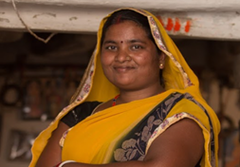
Putul Devi migrated from Jharkhand to work in Mumbai. Due to the lockdown, she and her husband lost their jobs and were forced to return to their hometown. Jan Saathi helped them gain access to local employment under the a government scheme.
Interventions in action
Supporting collective action and agency for workers
The fashion industry forms the lifeblood of many local economies in Asia, but dignity and respect in these jobs is often missing and glaring protection gaps can leave workers exploited. Collective action is a critical means of addressing systems change, because when workers organise, they can collectively bargain for better workplace standards and treatment.
Supporting organisations that help workers take collective action can translate into better working conditions and wages and more effective enforcement of laws and policies intended to protect workers’ rights. This is increasingly important as workers have become more reluctant to speak out due to insecurities exacerbated by Covid-19.
Laudes Foundation supports FEDINA, which trains workers and supports the formation of collectives and trade unions in both rural and urban areas that are capable of negotiating with employers.
Bengaluru is the third largest readymade garment manufacturing hub in India that employs about 1.2 million workers, but only 3% of the total workforce is unionised. FEDINA mobilised its workers and helped them form the Karnataka Garment Workers Union (KOOGU).
The union has 2,100 members and successfully secured a collective bargaining agreement with the Shahi Group, one of India’s largest apparel exporters. This improved working condition at the Shahi Unit 8 factory in Bengaluru, ensures, among other things, that workers have reasonable production targets and a full lunchtime break.
Citing financial losses, reduced orders and cancellations as a result of Covid-19, Shahi laid off around 30% of its workers and made unilateral decisions without the union’s input, such as shutting the creche facility and not paying wages during the second lockdown period from March to April 2021.
However, the strong women leaders of the union made the management take back 8% of the retrenched workers, restart the creche facility, and pay the lockdown wages. They also pushed for free and fair elections to the factory committee for Shahi Unit 8, resulting in five union members being elected to a factory committee for the first time in the history of the Shahi Group.
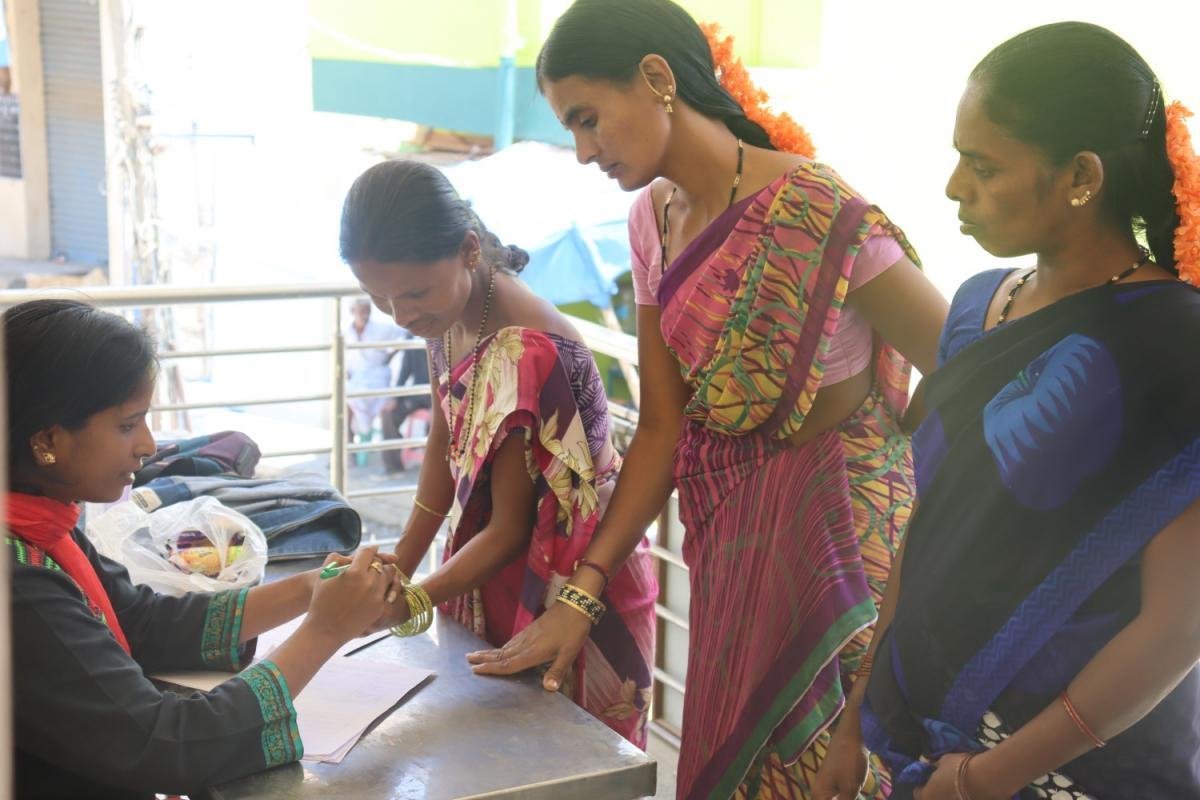
“Women are courageous. Now that we are all members, our goal is to educate everyone about these issues and encourage them to assert their rights without fear. We’ve had some success but more importantly the factory management is bending and fears us.”
Thayamma, a KOOGU union representative and member of the Shahi Unit 8 factory committee.
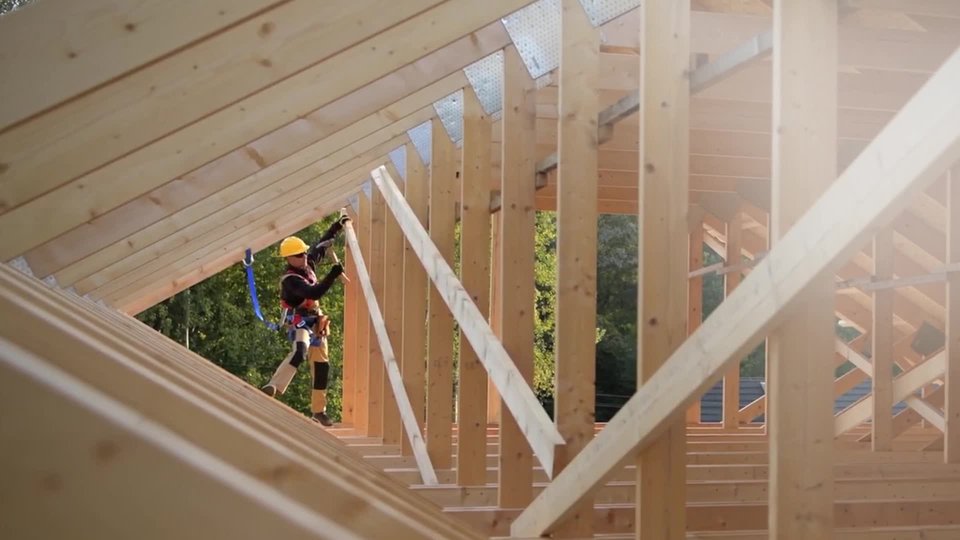
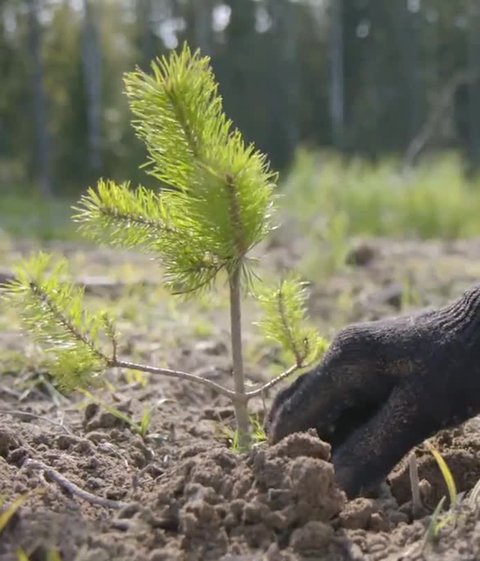
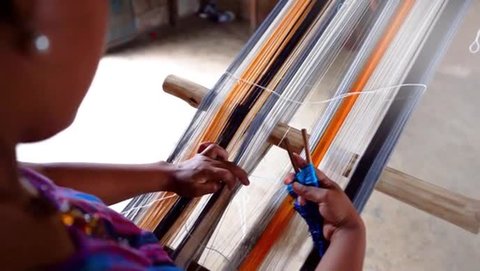
Share